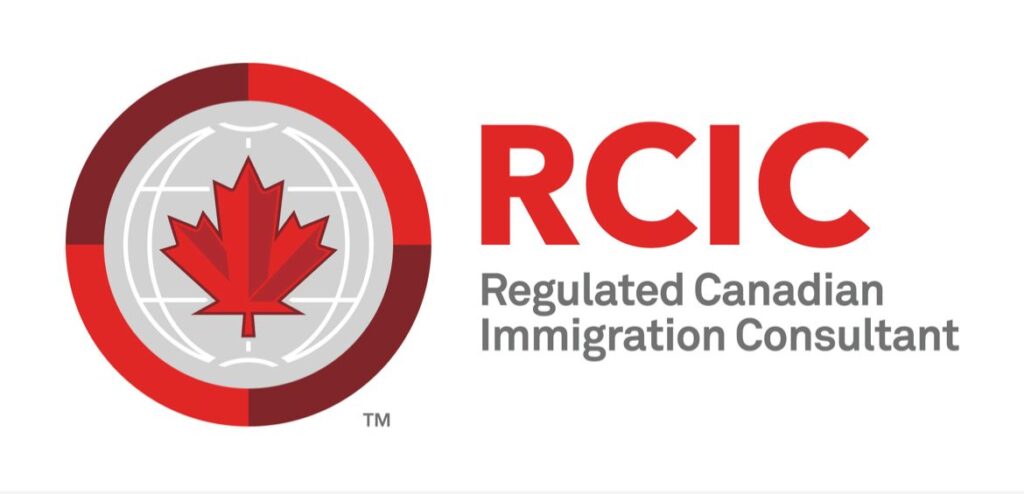
 Immigration
Immigration
Canada has long been a beacon of hope and opportunity for individuals worldwide, especially in Nigeria, Ghana, Cameroon, and India, who dream of a better future. With its booming economy, excellent healthcare, and diverse culture, it’s no wonder that Canada attracts thousands of applicants each year. However, navigating the complex canadian immigration process can be overwhelming. One wrong step can lead to delays, rejections, or even permanent bans.
Enter the Regulated Canadian Immigration Consultant (RCIC). This certified professional can make the process smoother, faster, and stress-free. But how? In this blog, we’ll dive deep into how an RCIC can simplify your Canadian immigration journey, tackle common myths, share tips, and help you avoid costly mistakes.

An RCIC (Regulated Canadian Immigration Consultant) is a licensed professional authorized by the College of Immigration and Citizenship Consultants (CICC). They are legally permitted to guide applicants through the Canadian immigration process, provide expert advice, and act as a representative with Immigration, Refugees and Citizenship Canada (IRCC).
RCICs are trained to navigate the complexities of Canadian immigration laws, keeping up-to-date with frequent policy changes and specific program requirements. Whether you’re applying for Express Entry, a study permit, or family sponsorship, working with an RCIC ensures you have a trusted guide to handle your case.
Let’s explore how an RCIC streamlines your path to Canada:
Canada offers over 80 immigration pathways, including:
It’s easy to feel overwhelmed or apply to the wrong program. An RCIC evaluates your background—skills, qualifications, finances, and goals—and recommends the most suitable immigration pathway.
Example:
A civil engineer from Nigeria with a high CRS score may qualify for Express Entry, while a graduate from India might benefit from a study permit leading to permanent residency.
Pro Tip: If you’re unsure where to start, a consultation with an RCIC can help you avoid time-consuming trial and error.
Fact: Nearly 25% of immigration applications are refused due to incomplete or inaccurate submissions.
RCICs ensure your application is thorough, accurate, and submitted on time. They handle critical aspects like:
Example: A family from Ghana applying for family sponsorship faced delays due to missing proof of relationship documents. With the help of an RCIC, they corrected the issue and successfully obtained approval.
Immigration policies in Canada evolve frequently. For example, CRS score cutoffs, new PNP streams, and temporary pilot programs can significantly impact eligibility. An RCIC stays ahead of these changes and provides guidance tailored to the latest updates, ensuring your application aligns with current requirements.
Communicating with IRCC can be intimidating, especially if you’re unfamiliar with technical terms or the procedural language. An RCIC acts as your authorized representative, handling correspondence on your behalf and ensuring no critical deadlines or requests are missed.
Myth: Some people believe they can rely on unlicensed agents for assistance.
Fact: Only RCICs and authorized representatives like lawyers can legally represent you before IRCC. Unlicensed agents cannot ensure the legitimacy of your application, which could lead to rejection or bans.
Immigration scams are a real threat, especially in countries like Nigeria, Ghana, Cameroon, and India, where unlicensed agents often prey on vulnerable applicants. These scams include:
How RCICs Help:
RCICs are regulated by the CICC and adhere to a strict code of ethics. By hiring an RCIC, you’re working with a professional bound by Canadian law to act in your best interest.
Applying for Canadian immigration can be stressful. An RCIC not only reduces your workload but also provides reassurance, knowing that a qualified expert is handling your application. They are transparent about your application status and keep you informed every step of the way.

Let’s address some common myths surrounding RCICs:
Myth 1: Hiring an RCIC is too expensive.
Fact: While there’s a fee for their services, an RCIC saves you time, effort, and potential costs from application mistakes or rejections. Many consultants also offer flexible payment plans.
Myth 2: RCICs guarantee visa approval.
Fact: No one can guarantee a visa, as decisions are made by IRCC. However, RCICs improve your chances by submitting a well-prepared and compelling application.
Myth 3: I can get the same help from unlicensed agents.
Fact: Unlicensed agents often lack proper knowledge and accountability. Only RCICs are legally authorized to provide immigration advice and representation.
Also Read : Super Visa Insurance: What You Need and How to Choose the Best Policy
When hiring an RCIC, follow these tips:
Meet Priya from India:
Priya wanted to study in Canada but struggled with her study permit application. She hired an RCIC, who helped her draft a compelling Statement of Purpose, gather financial documents, and address gaps in her profile. Her application was approved within weeks, and today, she’s pursuing her dream education in Toronto.
At SayHomeCanada Immigration, we specialize in simplifying the immigration process for clients from Nigeria, Ghana, Cameroon, and India. Our licensed RCICs provide personalized consultations, detailed guidance, and end-to-end application support.
Take the First Step Toward Your Canadian Dream!
Ready to simplify your Canadian immigration journey? Contact SayHomeCanada Immigration today for a free consultation and let our RCICs guide you every step of the way.
An RCIC offers professional immigration advice, assists with documentation, and represents clients before IRCC. They handle applications for study permits, Express Entry, PNPs, and more.
You can verify an RCIC’s credentials on the official CICC website by searching their registration number.
No, you can apply on your own. However, working with an RCIC increases your chances of success by avoiding errors and ensuring compliance with IRCC requirements.
No, but they can enhance your application’s strength and reduce the likelihood of rejection.
Both can provide immigration services, but RCICs specialize in Canadian immigration, whereas lawyers may have a broader legal focus.
Both can provide immigration services, but RCICs specialize in Canadian immigration, whereas lawyers may have a broader legal focus.
Thank you for the response .
Let's Connect